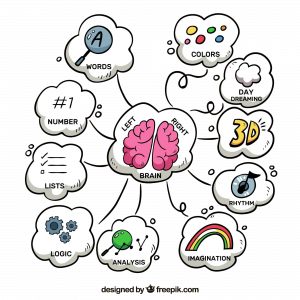Mastering ICSE Class 10: Study Tips and Strategies for Success
TLDR: Preparing for ICSE Class 10? Focus on strategic planning, regular revision, and solving past papers to ace your exams. Learn from toppers and use quality study resources.
The ICSE Class 10 board exams are a pivotal moment for students across India. A study by the National Institute of Mental Health and Neurosciences (NIMHANS) highlights that strategic planning reduces exam stress significantly. As topper Riya Sharma (ICSE 2023) suggests, “Consistent revision and understanding concepts deeply is the key to success.”
Understanding the ICSE Syllabus
The syllabus is comprehensive, emphasizing conceptual clarity. Break it into daily and weekly goals to avoid last-minute cramming. Focus equally on theory and application-based questions.
Subject-Wise Preparation Tips
- Mathematics: Dedicate time to algebra and geometry. Solve sample papers to build speed and confidence.
- Science: Create concise notes for formulas and diagrams. Use animations or YouTube for visual learning.
- English: Practice essays and explore character analyses for literature. Focus on grammar and sentence structure.
- History & Civics: Timelines and structured answers can help simplify dense content and improve retention.
Additional Tips for ICSE Class 10 Exam Preparation
- Time Management:
A crucial element of preparation is managing your time effectively. Create a study timetable that allows you to focus on each subject. Prioritize harder topics early in the day when your mind is fresh. Incorporate regular breaks to prevent burnout, following the Pomodoro technique: 25 minutes of focused study followed by a 5-minute break. - Mind Mapping for Complex Subjects:
For subjects like History or Science, use mind maps to visually organize information. This will help you better understand the connections between various topics, and improve memory retention. Create a flowchart for historical events or a diagram for scientific processes.
- Revision Timetable:
Closer to the exam, make a revision-only timetable that focuses on reviewing your weak areas. Short, frequent sessions are often more effective than long, drawn-out study marathons. Include active recall and spaced repetition to retain information for the long term. - Healthy Lifestyle:
Don’t underestimate the power of a healthy mind and body. A balanced diet, regular exercise, and adequate sleep are key for maintaining focus and energy levels during exam preparation. Studies have shown that regular physical activity increases brain function and reduces anxiety. - Practice Writing Speed:
In exams, time is of the essence. Practicing writing answers within a set time frame will help improve both your writing speed and ability to articulate thoughts quickly. Start with easier questions and gradually tackle longer, more complex ones. - Collaborate with Peers:
Form study groups where you can discuss tricky topics and exchange study resources. Explaining concepts to others not only strengthens your own understanding but also uncovers gaps in your knowledge. Online forums or dedicated study apps can help you connect with peers in a similar situation. - Take Care of Mental Health:
The pressure of preparing for board exams can be overwhelming. It’s essential to recognize the signs of stress and take breaks when needed. Practice mindfulness or engage in hobbies to refresh your mind. Remember, it’s okay to ask for help when you’re feeling anxious or stressed. - Use Technology Wisely:
Tools like Google Scholar, YouTube educational channels, or apps like Quizlet and Khan Academy can make learning easier and more interactive. But make sure to avoid distractions—set clear boundaries on when and how you’ll use these resources. - Exam Techniques:
Practice past papers, identify common question patterns, and prioritize time for questions carrying more marks. Toppers recommend solving at least five years of past papers to ensure familiarity with exam patterns. Study groups can also help clarify doubts and foster collaborative learning. - Stay Positive and Motivated:
Maintaining a positive mindset is half the battle. If you ever feel overwhelmed, take a step back and remember why you’re working hard. Whether it’s for your future career or a sense of personal accomplishment, keep your end goal in mind to stay motivated.

By integrating these strategies into your preparation, you can optimize your study sessions and make the most out of your time leading up to the exams.
Resources
To solidify preparation, explore these books: Frank ICSE Geography Papers, Frank ICSE Physics Papers, and Frank Way to Successful ICSE Chemistry Papers.
Conclusion
Preparing for ICSE Class 10 exams can seem daunting, but with the right strategies, resources, and mindset, success is within reach. Emphasize conceptual clarity, regular revision, and solving past papers. Learn from toppers’ experiences and apply evidence-based techniques like breaking down the syllabus into manageable goals. Use quality study materials and make time for self-care to avoid burnout. Remember, the journey to excellence is as important as the destination. Wishing you all the best in your preparation!
Tag:CLASS 10, ICSE, ICSE 2025, Study tips

